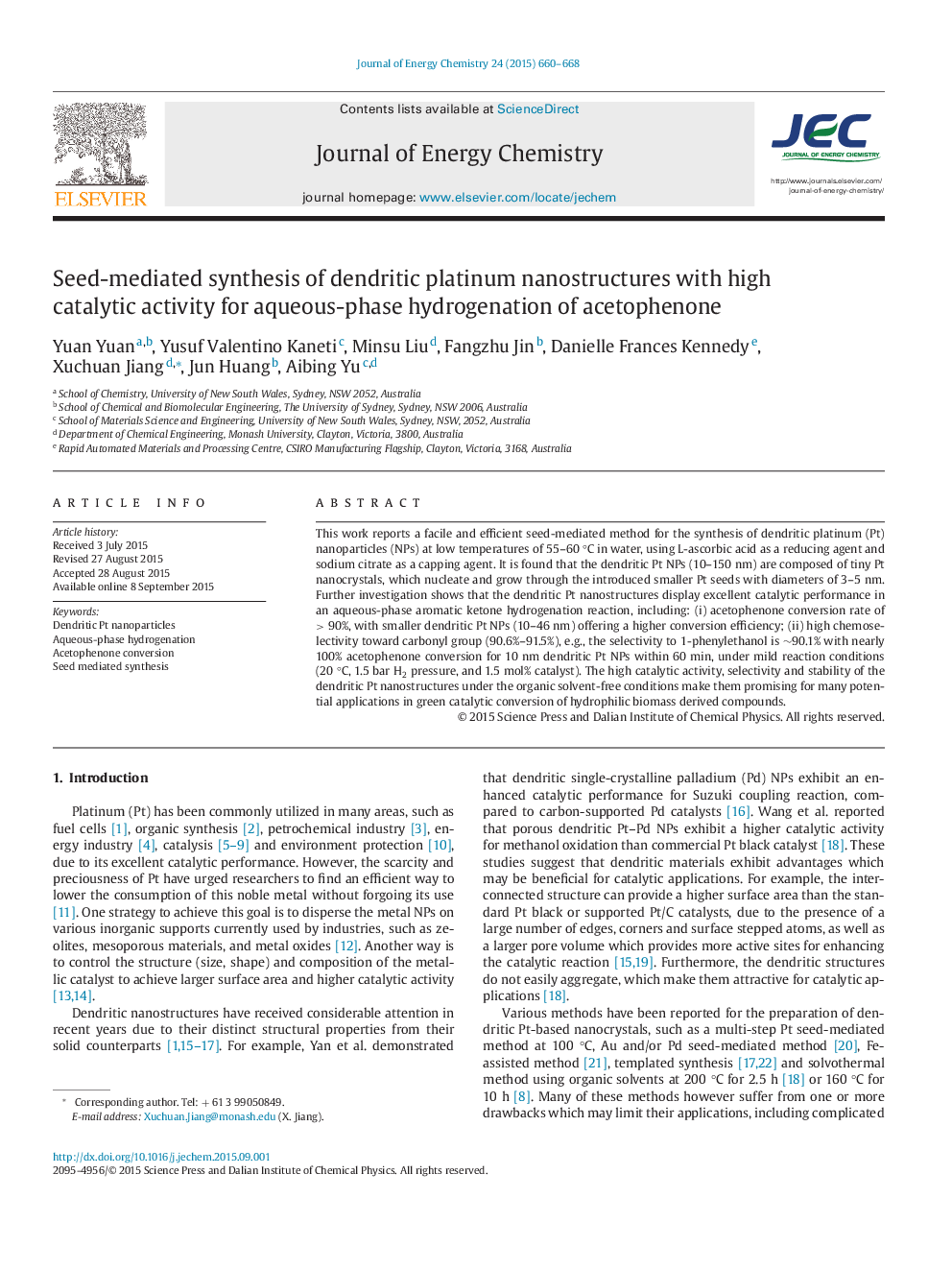| Article ID | Journal | Published Year | Pages | File Type |
|---|---|---|---|---|
| 63785 | Journal of Energy Chemistry | 2015 | 9 Pages |
This work reports a facile and efficient seed-mediated method for the synthesis of dendritic platinum (Pt) nanoparticles (NPs) at low temperatures of 55–60 °C in water, using L-ascorbic acid as a reducing agent and sodium citrate as a capping agent. It is found that the dendritic Pt NPs (10–150 nm) are composed of tiny Pt nanocrystals, which nucleate and grow through the introduced smaller Pt seeds with diameters of 3–5 nm. Further investigation shows that the dendritic Pt nanostructures display excellent catalytic performance in an aqueous-phase aromatic ketone hydrogenation reaction, including: (i) acetophenone conversion rate of > 90%, with smaller dendritic Pt NPs (10–46 nm) offering a higher conversion efficiency; (ii) high chemoselectivity toward carbonyl group (90.6%–91.5%), e.g., the selectivity to 1-phenylethanol is ∼90.1% with nearly 100% acetophenone conversion for 10 nm dendritic Pt NPs within 60 min, under mild reaction conditions (20 °C, 1.5 bar H2 pressure, and 1.5 mol% catalyst). The high catalytic activity, selectivity and stability of the dendritic Pt nanostructures under the organic solvent-free conditions make them promising for many potential applications in green catalytic conversion of hydrophilic biomass derived compounds.
Graphical abstractA facile seed-mediated method has been developed for the synthesis of dendritic Pt nanostructures under mild reaction conditions, with highly size-dependent activity and high selectivity for aqueous phase hydrogenation of acetophenone.Figure optionsDownload full-size imageDownload as PowerPoint slide
